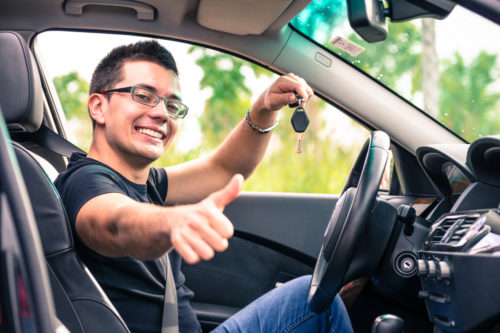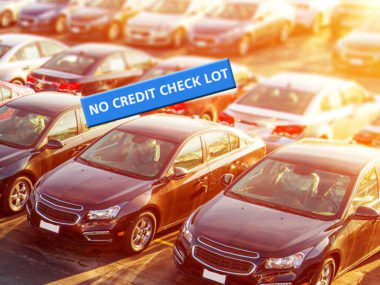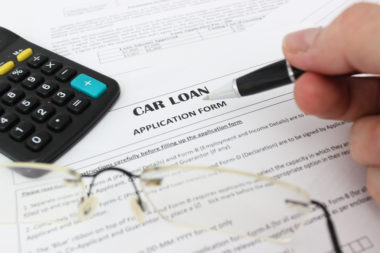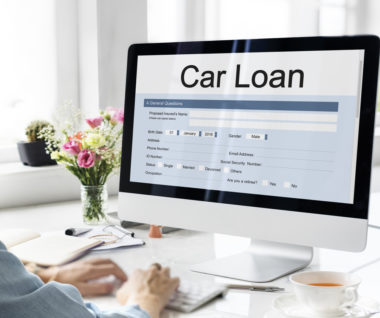Leasing a car can be an attractive option, thanks to monthly payments being cheaper than outright paying a loan to buy the car. However, it’s possible to buy your leased car, and is usually an option when the lease runs out. Here’s how to buy your leased car, and how to determine if it’s a good option for you.
Table of Contents
How To Buy Your Leased Car
Sometimes you don’t want to buy your vehicle until you’ve been driving it for a while. Or, perhaps the lease is built around an intent to eventually purchase. Let’s look at the different routes you can take to purchase your leased car.
Lease-to-Own
A lease-to-own contract is usually done with in-house lending, rather than by using an outside bank or credit union. It’s often done for those with credit problems. Also called rent-to-own for obvious reasons, the end goal is, if you make all the payments per your contract, you will own the car. You have the option of backing out of the contract, but you also forfeit all payments, just as if you were only renting the car.
Lease With Option to Buy
More common than lease-to-own is leasing with an option to buy. Your lease contract should specify a residual value. This is the amount you will need to pay when your contract is up in order to purchase the car. It’s a value that is estimated based on what the dealer thinks the car will be worth at the end of your contract. There will also be a purchase-option fee on top of this, as well.
Buying Out a Lease
Your last option is buying out the lease early. An early buyout value is determined based on your remaining payments and the residual value. There may also be buyout fees for early termination of contract, which can vary depending on your individual contract. The benefit is avoiding wear-and-tear and mileage fees.
Should I Buy My Leased Car?
Whether or not you end up buying your leased car depends on a number of factors. Each of these is specific to your situation, but can help you decide if buying your car is right for you, or if you should return the car and consider leasing or buying a different vehicle.
Why Do You Want to Buy It?
Why did you lease in the first place? Do you like the car, but could not afford loan payments? Or was your credit score low? Remember that just because there is an option to buy the car, you don’t need to take it. If you still like the car for the same reasons you originally leased it, then you should move forward with the buying process. If, however, your love of the car has cooled, or you want a different car, it may not be the best idea to buy the leased car, and instead return it and move forward with another car.
What Is the Residual Value?
Residual value is the price you will need to pay if you want to buy the car. It’s an estimate of what the car will be worth, made when you first initiate your lease contract. It’s also part of the equation that forms your lease payment. With a residual that is too high, for example, your monthly payments will be lower than they should be.
If you are buying the car at the end of your lease, you want your residual value to be lower than the market value. If your residual value is $15,000, but the market value is $20,000, that means you will be paying $5,000 less than if you were buying the car off the lot. Bear in mind that there will also be a purchase fee in many cases, of a few hundred dollars. This is usually negotiable, based on a few factors like mileage.
Is the Car in Good Condition?
Next, ask yourself about the wear and tear on the car. Is it in good condition? Have you been doing off-roading competitions every weekend, or is it just a commuter car? Both mechanics and aesthetics play a part here; are parts worn out, or are there scrapes and dents? Bear in mind that the car is now a few years old. Are you willing to do the necessary maintenance and repairs?
If there’s too much damage, it might be better to buy out the lease than deal with the penalties and fees associated with possibly breaking the lease, as the dealer will still need to sell the car as a used car after your lease is up.
What Is the Mileage?
If you are either over or under the mileage agreed to by your contract, you are in a good position to buy. If you are over, it’s to avoid the fees associated with exceeded your limit, much like the fee for too much wear and tear.
If you are under, however, then you are in a good position to negotiate your buyout price. Think of it this way: If you were going to not buy the car and return it at the end of the lease, but it only had a third of the miles you paid for, you didn’t get the full use of what you paid for. This is very powerful in negotiating.
How Will You Finance the Car Purchase?
Buying the car at the end of a lease is not too different from buying a used car from a dealer. This is, essentially, what you are doing. You have two options: working with or without a dealership’s help.
The dealership will essentially buy your leased car, and then sell it back to you for the same amount. While this makes them no profit, they will let you use their financing department, and they will receive a payment from the bank for setting up your loan. As dealerships often have a number of lenders to choose from, you might be able to get a lower interest rate. The dealership will also take care of registration with the DMV. While you can do this at any dealership that offers the make of your car, it’s especially helpful to do it at the same dealership you leased the car from, as they might waive some fees as a courtesy for leasing with them.
You can also try calling a lender directly, such as a bank or credit union, in order to secure a loan. This might get you a good interest rate, but you will have to do the DMV registration yourself. You will need to get pre-approved for the loan, similar to a mortgage.
You should not have to do a down payment, as you likely already made one at the beginning of the lease (which could have affected your monthly payments). However, if you decide to not buy your car, you will need a new down payment, and new financing. It may be worth it to, instead, buy the leased car instead of leasing or buying a new car.
Can You Negotiate a Good Buyout Price?
The answers from the last question are predicated on being able to negotiate a good price. Remember, having less wear and tear or driving fewer miles are both great for negotiating.
However, some leasing companies, especially larger ones, will not negotiate at all. There may be a price set in stone that they are not willing to budge on. If it’s a good price, you still might want to take the deal.
It’s also important to let them come to you. If you call them first, you might seem too desperate, and not have nearly the negotiating power that you might if you let the company call you.
If your bank or dealership won’t lower the cost, you can try a different tactic: negotiate the fees. Ask them to waive or reduce the purchase fee, for example.
Can You Get a Lease Pass-Through?
There’s a special case called a lease pass-through that’s specific for when you want to buy the car just to sell it. Say your friend likes your car, your lease it just about up, and you’re willing to sell it. Talk to the finance manager of your local dealership to see if they can facilitate the sale.
It’s essentially using the dealership as a way of finding someone who is willing to buy the car from the lease, very much like looking for a used car. Except the deal is immediate, with the dealership buying the car, and then turning around and selling it to the buyer.
Why bother going this route instead of paying off the car and then selling it yourself? The answer is simple: You won’t have to pay sales tax. The dealership also gets a small cut for handling the paperwork. If you don’t already have another car to replace the leased car, they can also pitch you new cars.
Are You Just Trying to Avoid Car Shopping?
We get it. You don’t want to go to the hassle of dealing with a salesperson, going around shopping for cars. It’s a common reason to keep leasing, or leasing a car and buying it when the option is available. Why not treat it as an extended test drive, and then buy it?
In the end, you can. But, you have to answer all the above questions first before deciding the test drive is over.
Armed with your answers to the above questions, you should have a good idea whether buying your car at the end of your lease agreement is a good idea or not. If you can’t get a good offer from a negotiation, or your life situation is quite right, it may not be the time to buy. If you are under the mile agreement, you might have a powerful tool to drive the price down. If you simply no longer like the car, return it at the end of the lease and find something new. If you love it, end your lease, buy your car, and enjoy owning a car.
Image Source: https://depositphotos.com/





